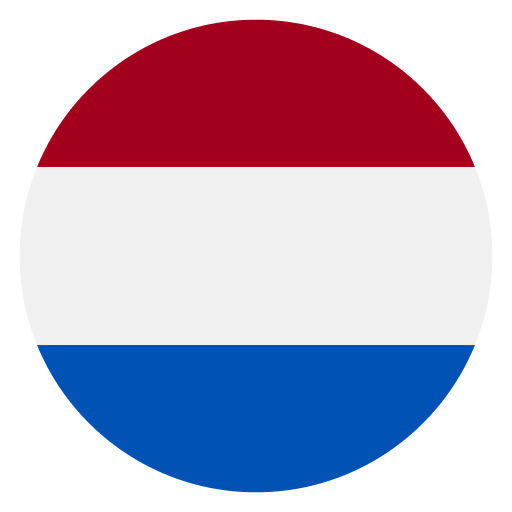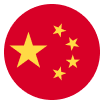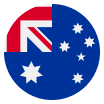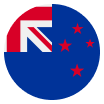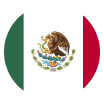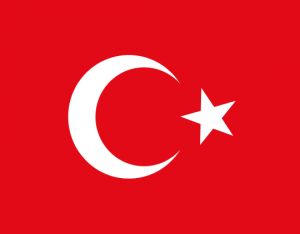Home > blog > Global Business Tips > Understanding Malaysia’s Import & Export Duties in 2025
Understanding Malaysia’s Import & Export Duties in 2025
anja

Clare Shi
Author
Key takeaways
If you’re doing research on how to source wholesale from 1688.com, you may have a few questions such as:
If you’re doing research on how to source wholesale from 1688.com, you may have a few questions such as:
If you’re doing research on how to source wholesale from 1688.com, you may have a few questions such as:
For businesses that regularly import or export, understanding Malaysia’s export and import tax policies is critical for compliance and profitability.
Below, you’ll find a complete overview of Malaysia’s customs taxes, incentives, SST reforms, and actionable tips to streamline operations.
Why Malaysia is a thriving import-export hub
Malaysia continues to record consistent trade surpluses, driven by:
- A network of Free Trade Agreements (FTAs)
- Well-developed Free Trade Zones (FTZs) and infrastructure
- Strategic shipping lanes connecting ASEAN, China and beyond
These advantages have made it a preferred location for manufacturers, traders and e-commerce exporters.
Import tax Malaysia
When bringing goods into Malaysia, you must account for three core taxes:
Import duty
What is it?
A tax imposed as a percentage of the imported goods’ value.
Rates:
0%–60%, depending on the HS Code classification. Some essential goods (e.g., medicines) are exempt.
Sales Tax on Imports (SST)
Administered under the Sales Tax Act 2018, the Sales and Service Tax (SST) has two primary components:
1️) Sales tax on taxable goods
- 5%: Essential products (e.g., food staples)
- 10%: Consumer goods (electronics, clothing, appliances)
2) Sales tax on Low-Value Goods (LVG)
- Flat 10%: Online imports valued under RM500
Excise duty
Applied mainly to:
- Alcohol
- Tobacco
- Luxury items
Rates vary by product and are typically higher to discourage consumption.
Import duty exemptions
Malaysia offers exemptions to support priority sectors, including:
- Renewable energy equipment
- Medical devices
- Educational materials
- Machinery and raw materials for manufacturing
You can apply for exemptions via the Ministry of Finance or the Royal Malaysian Customs.
Export duty in Malaysia
Most exported goods are not taxed. However, specific raw or unprocessed materials are subject to export duties, including:
| Exported Goods |
Duty Rate |
|---|---|
| Crude petroleum |
5%–20% |
| Palm oil |
5%–20% |
| Live animals |
5%–20% |
| Palm nuts |
5%–20% |
| Bamboo and rattan |
5%–20% |
| Certain metals and ores |
5%–20% |
Export incentives
To boost outbound trade, Malaysia offers incentives such as:
| Incentive |
Conditions |
Benefit |
|---|---|---|
| MITC |
60% Malaysian ownership, RM10M+ sales |
20% tax exemption on increased exports for 5 years |
| Normal AIE |
Export-focused manufacturers |
10–15% exemption based on value-add |
| Enhanced AIE |
Higher export growth |
Up to 100% exemption for top performers |
| Promotion of exports |
Manufacturers or agricultural exporters |
Double deduction on export-related expenses |
Special schemes for international trade in Malaysia: FTAs, FTZs, and LMWs
The Malaysian government offers several schemes to help companies involved in import and export boost profitability in international trade:
Free Trade Agreements (FTAs):
- ASEAN Free Trade Area (AFTA): AFTA eliminates tariffs between ASEAN member states, making it cheaper and faster to trade within Southeast Asia. Malaysian exporters and importers benefit from preferential tariff rates and simpler customs procedures.
- Malaysia–Singapore FTA: A bilateral agreement reducing tariffs and non-tariff barriers between Malaysia and Singapore. It promotes smoother trade flows, investment opportunities, and better market access for businesses on both sides of the Causeway.
- CPTPP: A high-standard trade pact linking 11 economies across Asia-Pacific and the Americas, including Japan, Australia and Canada. It offers reduced tariffs, greater market access and clear rules on e-commerce and intellectual property.
Free Trade Zones (FTZs):
FTZs are specific zones, usually located at borders or major trading ports, where businesses are exempt from taxes and import/export duties. They may even enjoy special incentives aimed at encouraging cross-border trade.
- No import duties if goods are re-exported: Goods brought into an FTZ can be stored, processed, or assembled without paying import duties, as long as they’re shipped out of Malaysia afterwards.
- Suitable for assembly, warehousing, and repackaging: FTZs are designed for businesses needing bonded storage, light manufacturing, or repackaging activities, making them ideal for exporters managing complex supply chains.
Major Free Trade Zones in Malaysia:
- Port Klang Free Zone (PKFZ)
Selangor – One of the largest integrated FTZs, popular for logistics, manufacturing and transshipment. - Bayan Lepas Free Industrial Zone
Penang – A well-known electronics and semiconductor hub, ideal for assembly and export manufacturing. - Johor Port Free Zone
Johor – Strategically located near Singapore, widely used for warehousing, distribution and petrochemical storage. - Tanjung Pelepas Free Zone
Johor – Adjacent to Port of Tanjung Pelepas, suited for transhipment and logistics activities. - Pasir Gudang Free Zone
Johor – Industrial and manufacturing zone close to Johor Port, used for heavy industries and re-export. - Senai Airport Free Industrial Zone
Johor – Next to Senai International Airport, convenient for air freight and electronics assembly. - Bukit Kayu Hitam Free Commercial Zone
Kedah – Near the Thai border, facilitating cross-border trade and warehousing. - Port of Tanjung Emas Free Zone
Johor – Serving shipping, storage and export-oriented businesses. - Kuala Lumpur International Airport (KLIA) Free Commercial Zone
Selangor – Focused on air cargo, transshipment and distribution centres.
Licensed Manufacturing Warehouses (LMWs):
LMWs let manufacturers bring in raw materials, components or machinery without paying import duties or taxes upfront. Duties only apply when finished goods leave the warehouse for the Malaysian market. This allows businesses to improve their cash flow and manage costs effectively.
Major SST reform effective 1 July 2025
Malaysia’s 2025 budget has introduced a major SST overhaul that affects importers, exporters and local businesses – especially businesses involved in the import of luxury items. These include (but aren’t limited to): premium food like king crab and salmon, truffle, or caviar; fashion items like shoes and bags; artwork like paintings and sculptures; and other lifestyle and non-essential items.
Certain service sectors are also affected by new service tax rates.
New sales tax rates
Remain at 0%:
- Chicken, fish, rice, milk, cooking oil, noodles, medicines, books, agricultural inputs
5% tax:
- King crab, salmon, codfish, truffles, silk, imported fruits (except apples and oranges), essential oils, industrial machinery
10% tax:
- Luxury goods such as racing bicycles and antique artworks
New service tax rates: 6 newly taxable sectors
| Sector |
Rate |
Threshold |
Key Exemptions |
|---|---|---|---|
| Leasing & rental services |
8% |
RM1,000,000 |
Residential property, B2B services, non-reviewable contracts (12m) |
| Construction services |
6% |
RM1,500,000 |
Residential, B2B, non-reviewable contracts |
| Fee-based financial services |
8% |
RM1,000,000 |
Core banking, Islamic finance, FX, remittance fees |
| Private healthcare services |
6% |
RM1,500,000 |
Services to Malaysian citizens |
| Private education services |
6% |
N/A |
Malaysian students, services for persons with disabilities (OKU) |
Government support measures
- Grace period until 31 December 2025 (no penalties)
- Exemptions for micro and small enterprises below revenue thresholds
- Relief for B2B and intra-group services to avoid double taxation
- 12-month exemption for non-reviewable contracts
For more information on SST, visit their website
How to manage cross-border payments
With new taxes and SST reforms putting pressure on cash flow, payment efficiency matters more than ever. Here are some best practices to help your business manage the impact:
- Use a multi-currency account for business to:
- Avoid double conversions: Receive and hold payments in the currency you pay to suppliers and avoid the extra currency conversion costs
- Pay suppliers in USD, EUR, or CNY: Settle invoices in your supplier’s preferred currency to build trust and negotiate better terms
- Simplify reconciliation: Manage all your currencies in one account so you have a clear view of cash flow
- Use platforms like WorldFirst that offer cross-border payments in Malaysia to:
- Access competitive FX rates: Protect your margins with real-time exchange rates and transparent fees
- Schedule automatic transfers: Never miss a supplier deadline and reduce your payment admin
- Track spend across currencies: Get visibility on every transaction to make better business decisions
- Stay on top of import/export duties to ensure accurate pricing and avoid compliance issues
Malaysia is strengthening its role as a regional trade hub. Aligning your strategy with the latest regulations on import and export duties, as well as other forms of taxation, will help you stay compliant and thrive in a fast-changing market.
Ready to simplify your cross-border operations?
WorldFirst gives your business more control over international payments, including receiving payments and managing foreign exchange costs. With a World Account, you can hold balances in multiple currencies, pay suppliers fast and access competitive FX rates – all from one platform.
Need to transfer money to suppliers in China? Your World Account makes it simple. And for purchases on 1688.com or TaoWorld, the integrated World Pay solution gives you a fast, reliable way to settle in CNH.
Continue reading
Subscribe
The Weekly Dispatch
Get the latest news and event invites. Signup for our weekly update from the worlds of fashion, design, and tech.




















